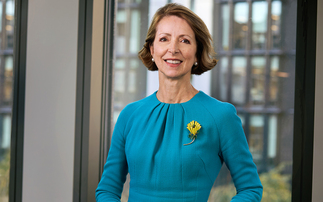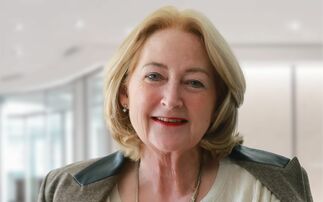Plan Money is one of the first small IFAs to form business ties with an aggregator site. Peter Chadborn explains why
It has got nothing to do with RDR you know, it is the engagement game which has changed. This, in a nutshell, is why Plan Money has launched a non-advised proposition via its website.
Why would a small, regional, general practitioner, IFA firm consider non-advised solutions? Had you asked my views on non-advice as recently as three or four years ago the concise response would have been that non-advice is for the stack ‘em high - sell ‘em cheap brigade who have little regard for the consequences of their punter's buying mistakes.
For a face-to-face adviser of over twenty years experience you would expect nothing less.
However, even three years ago we knew we were in denial about the rapidly evolving buying habits of consumers and it was these gradual acknowledgements which lead to a rebrand from CBK to Plan Money in 2010.
A name, we felt had to meet several specific criteria, these being: non-regional, no reference to the owner's name and no terminology such as Wealth Architects which does nothing to dispel the myth that you need pots of money to see an IFA.
We recognised that although our new clients were still coming to us via the traditional word-of-mouth recommendation route, they were invariably checking us out online first.
Hence, first impressions were formed by a sense of what our brand stood for and the website content, rather than a smile and a welcoming hand shake at the office door.
It was these observations which began the thinking that we need to present ourselves and model our services based upon how we interpreted our market was behaving, rather than regulatory demands alone.
We realised our thinking and direction was at odds with most of our peers while at a lunch meeting in 2010, hosted by an investment company.
They asked the dozen or so IFA guests what they intended to do with their segmented lower value clients post RDR. Without exception, the advisers declared that they would have to "let them go," the assumption being that the banks would pick up the slack. Wry smiles all round now with the benefit of hindsight.
My business partner and I were the only ones saying that surely there had to be another way.
At this stage it is worth stating that we do not subscribe to the notion of low-value and high-value clients. Low-value transactions, sure; but what happens when a ‘high-value' client wants to transact a low-value piece of business?
They do not want to be made to jump through ‘regulatory hoops' in order to transact what they perceive to be a relatively straight-forward transaction any more than we want to make them. Not to mention the disproportionate cost this incurs.
And exactly how do you define a ‘low-value' client? Many advisers do this by segmenting according to Funds under Management, yet we've all got clients who may have no investments with us, perhaps having received occasional mortgage advice and holding a few protection policies, yet they refer new clients to us all the time. Well that makes them high-value in my book.
Furthermore, 95% of our new clients come to us via referrals from existing clients or other professionals.
Turning away a low-value referral could have disastrous ramifications for our relationship with the valued referrer. So we decided that post RDR we needed to be able to offer a service for any type of business and any type of client in a way that was valued by them and profitable for us.
The first step, having rebranded, was to introduce processing efficiencies wherever possible. These measures have been implemented and we now outsource the majority of our protection applications to LifeQuote for ‘Big T' telephone underwriting.
This saves significant time and reduces our risk regarding non-disclosure and is a service we are happy to pay for.
We have moved the majority of client's investment and pension portfolios from in-house models based upon portfolios of funds, to Multi-Asset portfolios. The former was adding little value to our proposition yet causing considerable work and risk for us.
We have also secured referral steams to specialists where we felt our in-house knowledge and skills were not up to scratch, for example we refer all PMI enquiries to Regency Health.
The natural conclusion for the low-value transactions dilemma was to offer a non-advised service and this would obviously be delivered via our website. The more we thought about this proposition the more we liked it.
After all, our objective was not to stack ‘em high and sell ‘em cheap. If we do no more than find a solution for low value business, rather than turn it away or transact at a loss, then we have a win.
An almost unintended consequence would be if this service ended up attracting new clients who then want full regulated holistic advice, but that is a bonus not a primary objective.
We want to be saying to the market "how do you want to do business with us?" The analogy is for clients to be able to ‘jump on and off the advice train' when it suits them and, crucially, when it suits us too.
As soon as any adviser's client needs to engage with another financial services provider, for whatever business, the strength of the client relationship is at least vulnerable and at worst heading out the door.
It is naïve to think that clients will always come back to us for the things we think we are good at.
A huge chunk of my online shopping is done with Amazon. I know that I'm not always getting the absolute keenest price on my purchase but quite frankly I don't care because it is easy and, like most people, I'll follow the shopping path of least resistance.
Google are not yet fully into the financial services space, but will be. The likes of Moneysupermarket are predominantly in the general insurance market but it is only a matter of time before this changes.
There are countless other examples of players who may not be fully operational in the FS space but are mastering or have mastered the art of consumer engagement.
By offering online services we are at least doing something to protect our client relationships and increasing our chances of securing constant brand engagement. To do nothing or think otherwise is akin to commanding the tide to halt.
As a small firm with limited resource we quickly realised that we could not build a non-advised proposition from scratch.
The next consideration was whether we could partner with an organisation who wanted to build such a service for the IFA market but conflicting agendas and corporate process is too often a barrier.
Our ultimate decision was to partner with PayingTooMuch.com. They were already up and running in their own right as a Direct to Consumer proposition and were effectively offering a ‘plug and play' solution where we could link smoothly from our site to theirs to facilitate a seamless, co-branded client journey.
PayingTooMuch.com is a comparison site for protection, general insurance and energy so an immediate win for us is that we could offer our clients a broad range of GI solutions and even energy comparison so we are already benefiting from business lines which we were not previously.
Of equal satisfaction was the fact that PayingTooMuch.com emphasise the features of protection products, not just a price comparison and this is an aspect we major on when giving face-to-face regulated advice, so it fits with our ethos.
Our website home page now promotes the two clearly different ways in which to engage with us. Plan with Advice and Plan Direct. We had to build a Plan Direct page which introduces our partnership with PayingTooMuch.com.
So our first non-advised, automated solution is up and running, offering protection and general insurance solutions. Our plan is to add similar propositions for investments, annuities and pensions and as such we will have achieved the following objectives:
• Not have to turn away any client or prospective client
• Ensure all transactions are profitable for us
• Not force reluctant clients through ‘regulatory hoops'
• Brand engagement on all levels
• Lead source for face to face advice service
• Introduction of new business lines (Motor, Home, Energy, Travel)
I willingly acknowledge that non-advised solutions are a step too far for many advisers because it absolutely goes against the grain and everything they stand for.
However, we are convinced that we have to be more open-minded to how our clients are choosing to engage with the financial services industry and ask ourselves where our businesses will be in five to ten years' time if we ignore the markets exponential behavioural shifts.
Peter Chadborn. Adviser and Director at Plan Money











